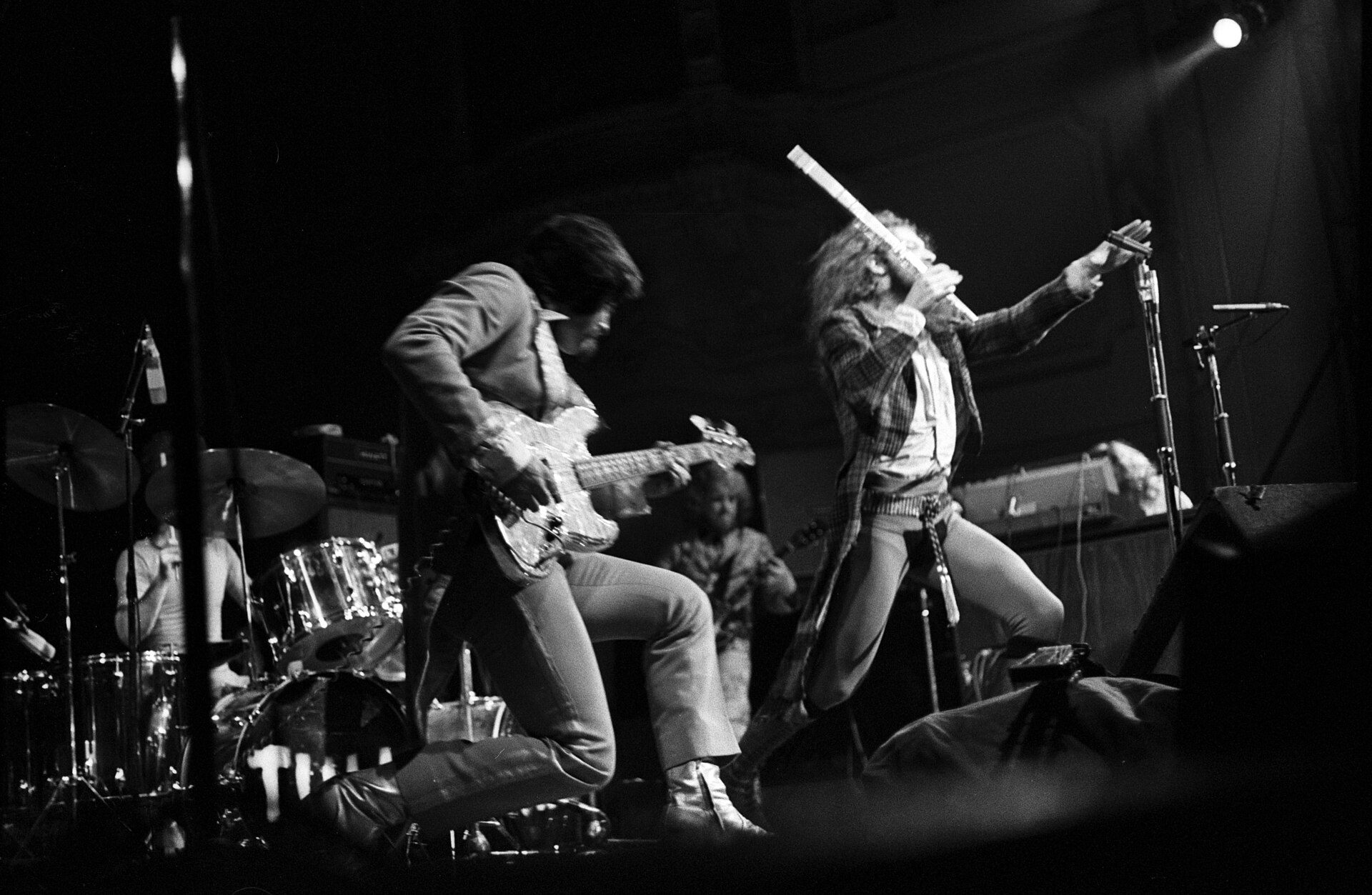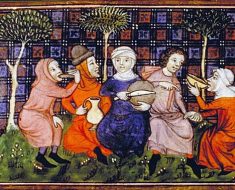Everyone who follows Medieval Historia clearly has excellent taste!
So… a little scoop just for you.
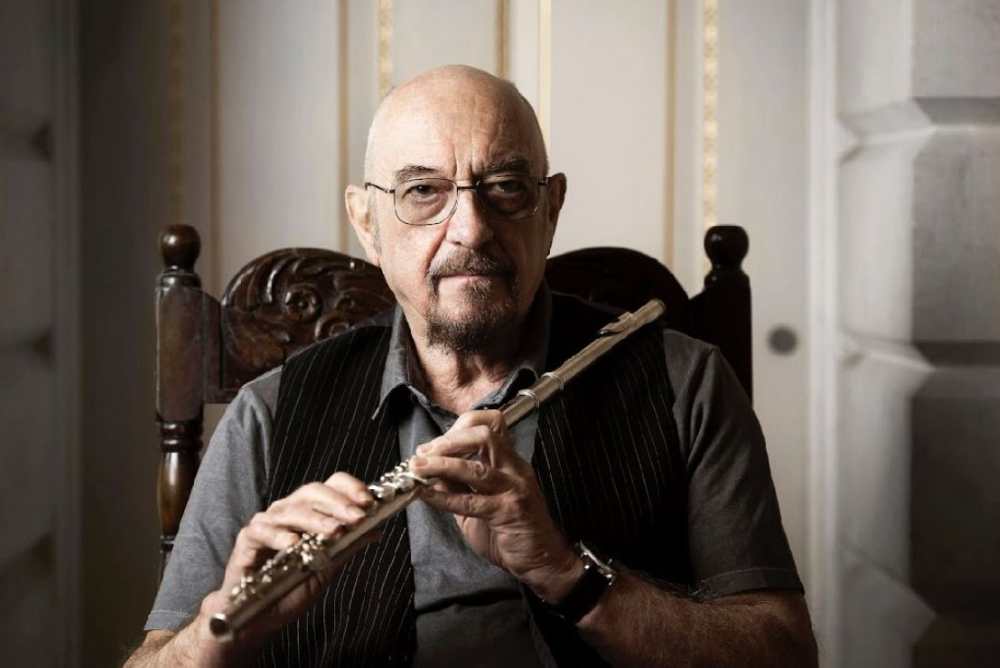
Wet your lips, grab your flute, sit back…or rather, stand on one leg…and feast your eyes on our exclusive interview with Mr Ian Anderson of Jethro Tull.
The Interview
_____
Medieval Historia:
Ian, thank you for taking time out of your very busy schedule to talk to us. May I start by saying… what an honour it is!
Ian, you’ve been playing cathedrals for a number of years now.
What has been your favourite cathedral to play in, and why?
_____
Ian Anderson:
There have been quite a few church and cathedral concerts since 2004, including some in other countries too, 39 in total so far. I try to avoid having favourites, but Hallgrímskirkja (Reykjavík), Gloucester Cathedral and Bath Abbey stand out for atmosphere.
The truly historic Gothic architecture of the 12th and 13th centuries appeals to me greatly, rather than the Victorian Gothic revival.
Cologne Cathedral took more than 600 years to complete, and Liverpool Anglican Cathedral is almost entirely 20th century, while Coventry Cathedral is a post-war replacement after the German Blitz destroyed the original.
So, to a degree, all are an ongoing work to support the Christian faith, a spiritual Forth Bridge in terms of maintenance and repair funding.
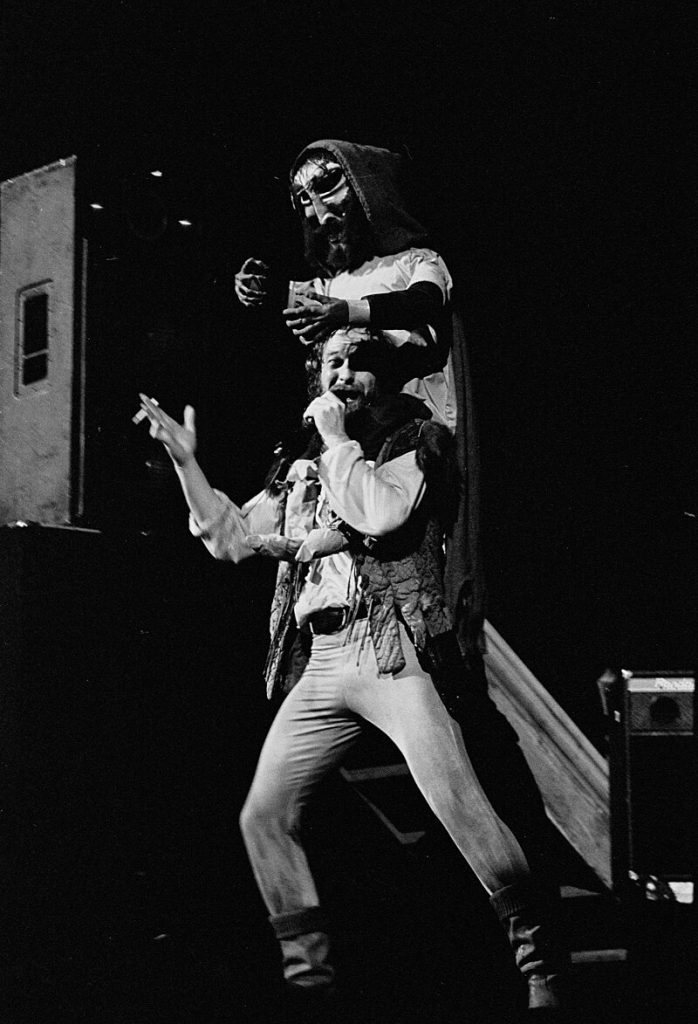
_____
Medieval Historia:
You clearly know your Cathedral’s, and some wonderful choices there Ian. I didn’t know Cologne Cathedral took so long to build.
Now I’m learning something new!
For those old enough to remember ‘back in the day’ (I’ll rely on my father for this), when Jethro Tull burst onto the scene… aside from the music, you all cut quite the figure with your stage costumes.
Was this something inspired by other bands at the time, or did you consciously decide to combine medieval and Tudor elements into your look from the start?
_____
Ian Anderson:
More a matter of desperation…trying to find stage wear not dictated by current fashion and not what other bands were wearing. There was a certain Dickensian, tattered look to begin with, followed by the ballet-inspired costumes of the mid-seventies.
I think I reintroduced the codpiece to the concert stage long before Michael Jackson had a go at it!
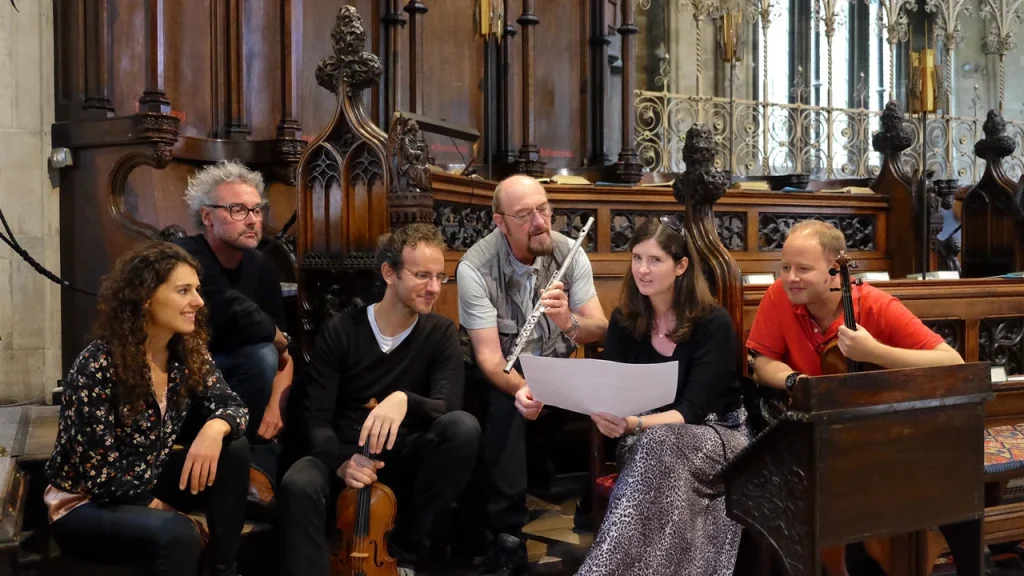
_____
Medieval Historia:
Now I never thought we’d have ‘Michael Jackson’ in a sentence on Medieval Historia!
Aside from the flute, you’re naturally gifted when it comes to playing many other instruments.
If you could take yourself back a few hundred years, what instrument do you think you would have picked up… and why?
_____
Ian Anderson:
I think it would have still been a flute-family instrument…or perhaps a lute.
Or perhaps an instrument of war… musket and dagger? Flintlock pistol? Bow and arrow?
_____
Medieval Historia:
Now that’s an intersting way of looking at it… an instrument of war.
I wonder how they’d react to a longbow on stage at the London Palladium?
You have something of an exhausting tour coming up, starting in July, with dates all over Europe and finishing back in the UK from December onwards.
Obviously, you’re living out of a suitcase, as it were, and travelling a lot… but do you ever get the chance to get out and explore the history of the cities and towns you play in?

______
Ian Anderson:
I travel light in terms of personal effects, a cabin trolley or backpack suffices for my simple needs, since I am rarely away from home for more than a few days.
I sometimes stay an extra day, or go out a day early, to some cities where I want to be a tourist for 24 hours. Museums, churches, and train station alleyways beckon the keen photographer that I have been since childhood.
_____
Medieval Historia:
Travelling light…that’s my style.
Final question…promise! I can’t go without asking that question: the band’s name!
Jethro Tull (the man) is a firm favourite on Medieval Historia (yes, I know he pushes the timeline a bit, but our followers love him).
Was it a random choice, or a calculated decision?
_____
Ian Anderson:
Nothing to do with me, in fact! It was a booker in our agent’s office who came up with the name.
I thought he had made it up. Two weeks later, I realised we were named after a dead guy who invented the seed drill. Whoops…
But since then, I have learned much, much more about Jethro Tull and the world of agriculture in general. Odd coincidence that seed drills became a regular part of life when we were farming 800 acres in the Buckinghamshire/Oxfordshire borders in the late seventies.
These days, in Wiltshire, we don’t do arable on this heavy soil and concentrate on planting trees and grazing.
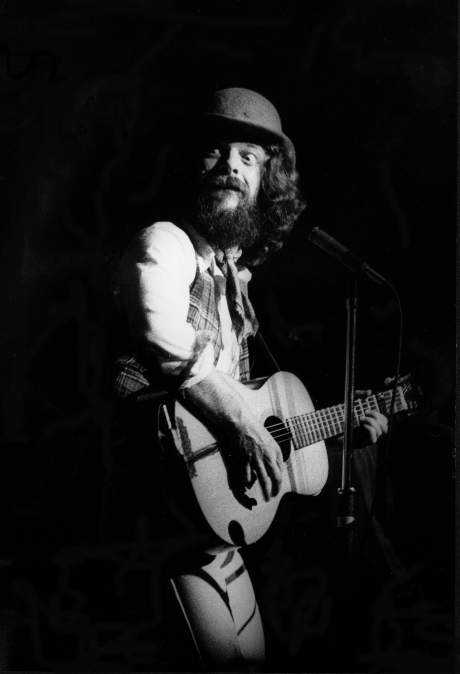
_____
Medieval Historia:
Ian, myself and everyone at Medieval Historia wish you all the very best with your tour and your new album, Curious Ruminant.
Thank you once again for taking the time to talk to us
_____
Ian Anderson:
Many thanks…and keep up the good work of being a contemporary reference point for the living history of today.
